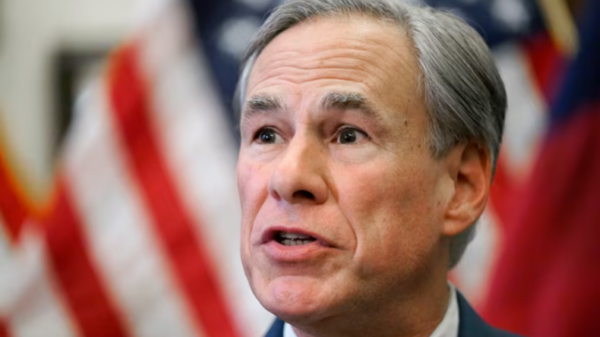One district has already announced a move to virtual classes during the first week of the semester.

By Emily Donaldson, Corbett Smith and Talia Richman
The highly contagious omicron variant is spreading rapidly across the state just as students and staff return from the holiday break.
Some districts are making changes to their health and safety protocols. However, the majority have not announced significant changes to spring semester plans.
Here’s what we know about schools reopening.
Some districts are still mandating masks.
Dallas ISD will extend its mask mandate through spring break, citing projections that the number of positive coronavirus cases will increase in future weeks. The district had previously planned to end its mask requirement in mid-January.
Duncanville ISD will also continue requiring face coverings, Superintendent Marc Smith wrote in a Jan. 2 letter to families.
Meanwhile, Richardson ISD’s mask mandate in elementary schools will officially expire when students return to class Tuesday. RISD administration made that policy change in October, when cases were low. The move matches mask-optional policies the district implemented for its middle and high school students in November.
The legality of mask mandates in Texas schools remains tied up in federal court. The U.S. 5th Circuit Court of Appeals last month halted a federal judge’s ruling that tossed out Gov. Greg Abbott’s ban on mask mandates, delivering at least a temporary victory to the Republican state leader.
Only one local district plans to offer only virtual classes at the start of the semester.
Lancaster ISD students will learn remotely during the first week of the spring semester because of the uptick in COVID-19 cases and Dallas County’s heightened risk level. The semester will begin on Wednesday, Jan. 5, and district officials will reassess the situation on Friday. So far, students are expected to return in person on Monday.
“While we know this extended time of online learning presents challenges for some families, given our current pandemic status, it is necessary to prevent students from returning next week, only to have to send them home again before the end of the week,” district officials said in a letter to families.
Few districts have announced plans to change reopening plans or health protocols.
The majority of districts have not announced any changes to the spring semester. Grand Prairie ISD, for example, has no plans to delay the start of classes or alter current protocols. But officials continue to strongly encourage masks, social distancing when possible and the frequent washing of hands, spokesman Sam Buchmeyer said.
Frisco, Fort Worth and Arlington schools will continue the school year as expected, officials for those districts said.
A pandemic response committee in Highland Park ISD met on Friday and strongly encouraged that staff and students wear facial coverings for the first two weeks.
“Due to the current environment, we believe it makes sense to approach the next few weeks with caution in the interest of keeping schools open,” said trustee Bryce Benson.
Students aren’t allowed to learn in person when sick with coronavirus.
Students sick with COVID-19 or suspected of having the coronavirus aren’t allowed to attend school in person, according to state health guidance. Parents shouldn’t send a child to school on campus if they show symptoms or have a test-confirmed case of COVID.
Schools can offer remote instruction to students sick at home. If a school learns that a student was in close contact with someone sick with the coronavirus, officials are required to notify that child’s parents.
Districts have access to millions of dollars to support COVID testing in schools, but most haven’t tapped into it. Logistical challenges on campuses have prevented some from offering tests on campuses.
School officials must also get parental permission to test students, and many families have not opted in.
District decisions on closures vary.
For the past two school years, local leaders have generally made their own decisions on whether to close a campus for coronavirus-related reasons. They may do so because of a surge of related cases or because they don’t have enough staff.
Many don’t have set COVID-19 benchmarks that would trigger a campus closure.
Texas’ local health departments have no authority to close campuses to preempt the spread of COVID-19. Attorney General Ken Paxton issued guidance last summer that clarified health authorities cannot issue sweeping orders to close schools in advance of an outbreak.
The DMN Education Lab deepens the coverage and conversation about urgent education issues critical to the future of North Texas.
The DMN Education Lab is a community-funded journalism initiative, with support from The Beck Group, Bobby and Lottye Lyle, Communities Foundation of Texas, The Dallas Foundation, Dallas Regional Chamber, Deedie Rose, The Meadows Foundation, Solutions Journalism Network, Southern Methodist University and Todd A. Williams Family Foundation. The Dallas Morning News retains full editorial control of the Education Lab’s journalism.









You must be logged in to post a comment Login